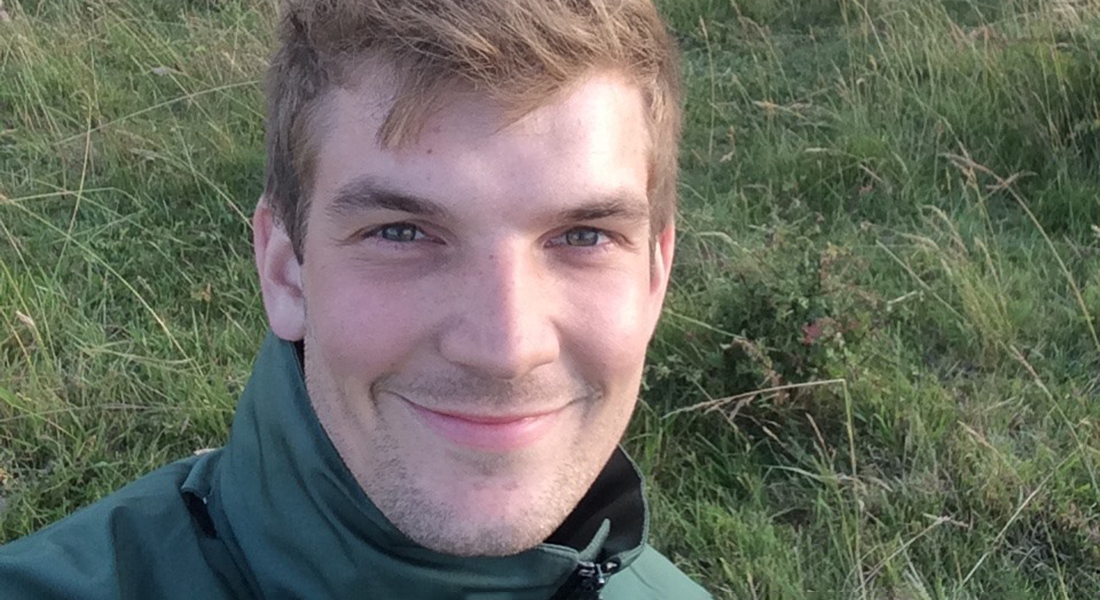Read more and apply here.
Niels, Development Director in a family-owned property group

"I believe I have a more applied approach to economic issues, which is a major advantage in my experience in business life."
What do you do?
I currently serve as Development Director in a family-owned property group. My primary activity is to buy new properties with operational and development potential, and optimise the existing property portfolio. I also run a nature conservation company in parallel with a former university friend, where we manage 800 hectares and have 220 suckler cows.
How did you end up in your current job?
”Life is about living your dreams. Forging your ideas while the thought is still glowing. Those who don’t boldly seize the opportunity, squander the prime of their youth.” These were the words of my grandfather during a speech he gave as principal of an agriculture school in the 1960s.
My student job led to a full-time position in the property sector as research coordinator in a consultancy firm.
I have always been fascinated by primary production, and the opportunities that arise when you apply theoretical knowledge to practical issues. That is why I went to agricultural college and did practical training in Canada after senior high school.
When I returned home, I was determined to study further, and chose the bachelor programme in agricultural economics, which is highly focused on applied economics and current societal issues. During my studies, I held student jobs as a practice teacher on a number of economics courses.
I was also self-employed, working in a nature conservation company that I started with a friend while I was studying. I have had both feet planted in the agricultural sector for many years. As my economics studies gave me greater insight into investment theory, my interest in investment properties increased. Finding an economic rationale for investing in agriculture, rather than typical investment properties, became a focal point for my studies.
Today, I have the pleasure of being able to do both. In addition to being a student, nature conservationist and practice teacher, I held a student job as an analyst in the real estate sector during the last two years of my studies. A sector I was born and raised in. My student job led to a full-time position in the property sector as research coordinator in a consultancy firm. I later returned to Funen, where I have now become part of the executive management of a family-owned property group.
My current work situation has never been a goal for me, but my aim has always been to create something that creates clear value. As a practice teacher, it was helping students to understand and experience the joy of learning. As a farmer, to see cattle, crops and nature develop. As a property investor, to see a property be built or rebuilt/renovated, while the key figures also improve - that is what motivates me.
Which academic skills do you use most in your work life?
I have to make investment decisions each day, where I draw on my economics studies. The most concrete competences I use from my degree programme are in relation to investment theory and valuation methods.
I also use much of my general financial intuition in relation to the assumptions I make, which form the basis of my decisions.
I have to make investment decisions each day, where I draw on my economics studies.
In my earlier positions, I drew more on my expertise in relation to statistics and data processing, and my ability to put together relevant and interesting analyses and make connections. As an agricultural economics graduate, I believe I have a more applied approach to economic issues, which is a major advantage in my experience in business life.
A good advice: What do you want to tell a prospective student?
It has always been important to me to be able to relate theory to practice. I see a student job as a necessity in order to maximise learning. It is also important to take social responsibility and contribute to the community while studying. This makes your study years much more fun, and leads to greater academic solidarity.
Apply and read more about the international MSc degree Agricultural Economics.
